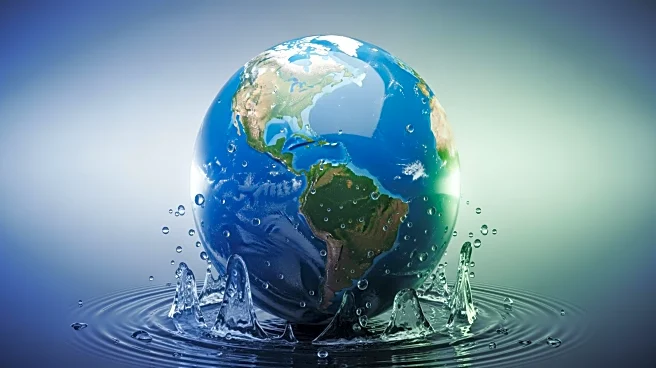What's Happening?
Recent research published in Geophysical Research Letters has revealed that the pumping of groundwater has caused the Earth to tilt by approximately 31.5 inches. This phenomenon is largely attributed to the redistribution
of 2,150 gigatons of groundwater for irrigation and human use, which eventually relocates to the oceans. The study, led by Ki-Weon Seo from Seoul National University, highlights the significant impact of groundwater movement on the Earth's rotational pole and sea-level rise. The research builds on NASA's 2016 findings that water distribution can alter Earth's rotation, providing quantifiable data on the effects of groundwater pumping.
Why It's Important?
The findings underscore the substantial impact of human activities on global climate change, particularly through groundwater pumping. This shift in Earth's tilt contributes to sea-level rise, posing threats to coastal communities and ecosystems. The study emphasizes the need for sustainable water management practices to mitigate these effects. As the largest impact on the drift of the rotational pole, groundwater redistribution highlights the interconnectedness of human actions and environmental consequences, urging policymakers and conservationists to address these challenges.
What's Next?
The study suggests that further historical data analysis could provide deeper insights into trends and the long-term effects of groundwater movement. Conservationists may use this information to develop strategies to combat sea-level rise and other climate-related issues. The research calls for global efforts to implement changes in water management practices to prevent further environmental impacts.
Beyond the Headlines
The ethical implications of groundwater pumping extend beyond environmental concerns, affecting Indigenous communities and their rights to natural resources. The study raises questions about the balance between human needs and environmental preservation, urging a reevaluation of current practices.










